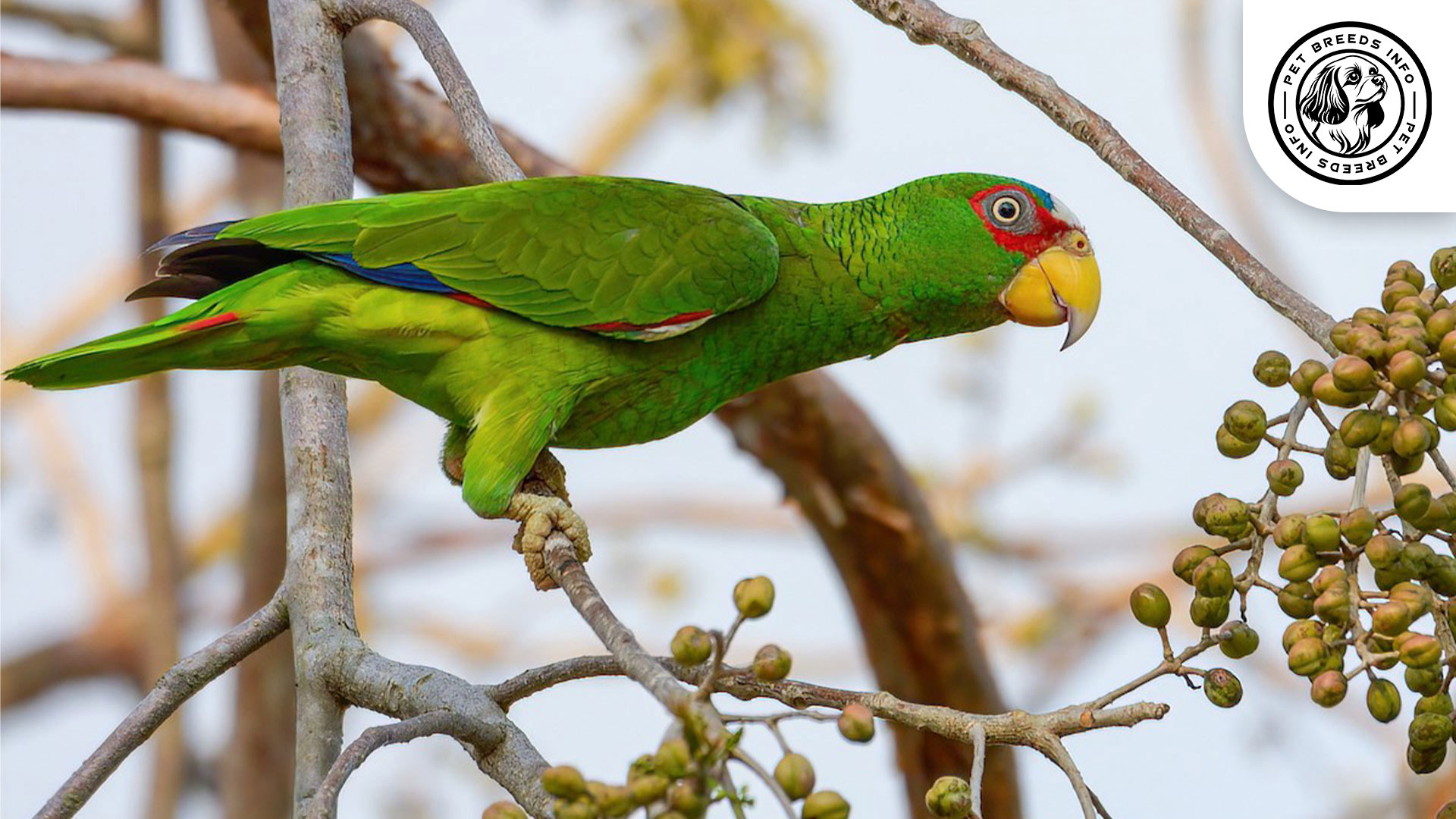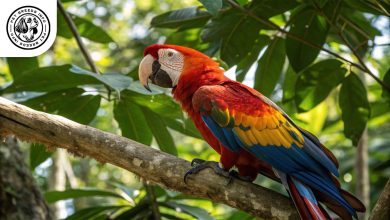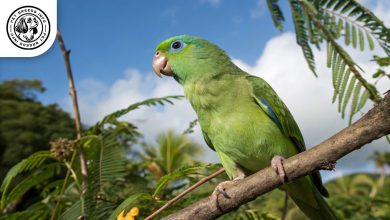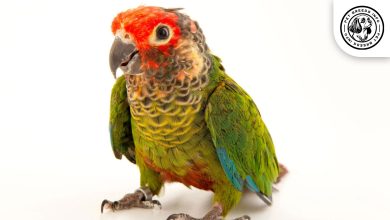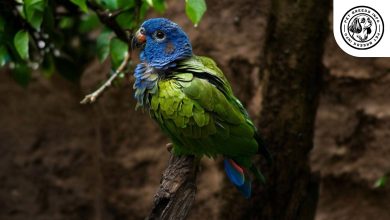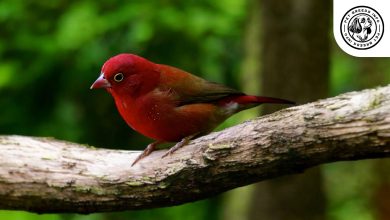White-fronted Amazon Bird: Personality, Lifespan, Food & Care
General Introduction of the Breed
The White-fronted Amazon (Amazona albifrons) is a medium-sized parrot native to Central America. It is also known as the White-fronted Parrot or White-fronted Parakeet.
This parrot is primarily found in Mexico, Belize, Guatemala, and Honduras. It thrives in tropical and subtropical forests, as well as open woodlands and cultivated areas.
The White-fronted Amazon has been kept as a pet for centuries due to its friendly nature, talking ability, and moderate size. It remains a popular choice among bird lovers.
Table of Contents
| Common Name | White-fronted Amazon, White-fronted Parrot, White-fronted Parakeet |
| Scientific Name | Amazona albifrons |
| Origin | Mexico, Belize, Guatemala, Honduras (Central America) |
| Size | Around 10 inches (25 cm), 7-9 ounces (200-250 grams) |
| Lifespan | 40 to 50 years |
| Talking Ability | Capable of learning words and phrases, but not the best talkers among Amazons |
| Colors | Primarily green with a bright white forehead, red around eyes, blue on wings |
| Noise Level | Moderate (tolerable for apartment living) |
| Social Behavior | Intelligent and highly social; forms strong bonds with owners |
Physical Characteristics
The White-fronted Amazon is one of the smallest Amazon parrots, measuring around 10 inches (25 cm) in length and weighing between 7 and 9 ounces (200-250 grams).
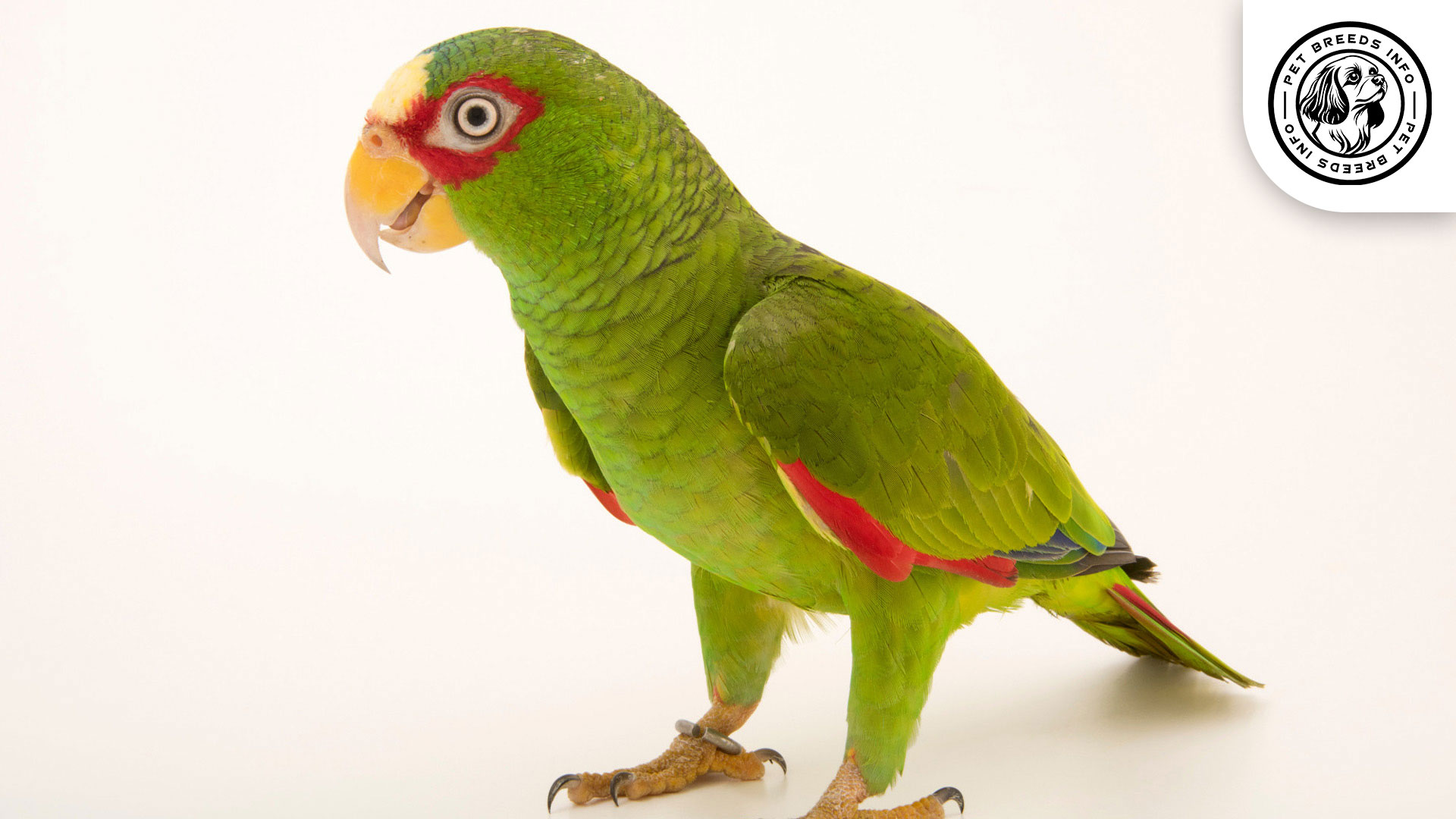
It has a predominantly green plumage with a bright white forehead, which gives it its name. The bird also features red markings around the eyes, blue patches on the wings, and a red or orange beak.
Its eyes are dark brown, and its tail is medium-length with a slightly rounded shape.
Males and females have similar appearances, though males may have more red on their wing feathers.
Read More: Red-billed Firefinch
Personality and Temperament
White-fronted Amazons are intelligent and highly social birds. They are known for their playful and curious nature, often engaging in interactive games with their owners.
These parrots have moderate energy levels and enjoy flying and climbing. They need ample playtime outside their cage to stay happy.
They form strong bonds with their owners and can become very affectionate, though they may also show signs of independence.
White-fronted Amazons are capable of learning words and phrases, but they are not the best talkers among Amazon parrots.
They are generally friendly with humans and other birds but may become territorial during breeding season.
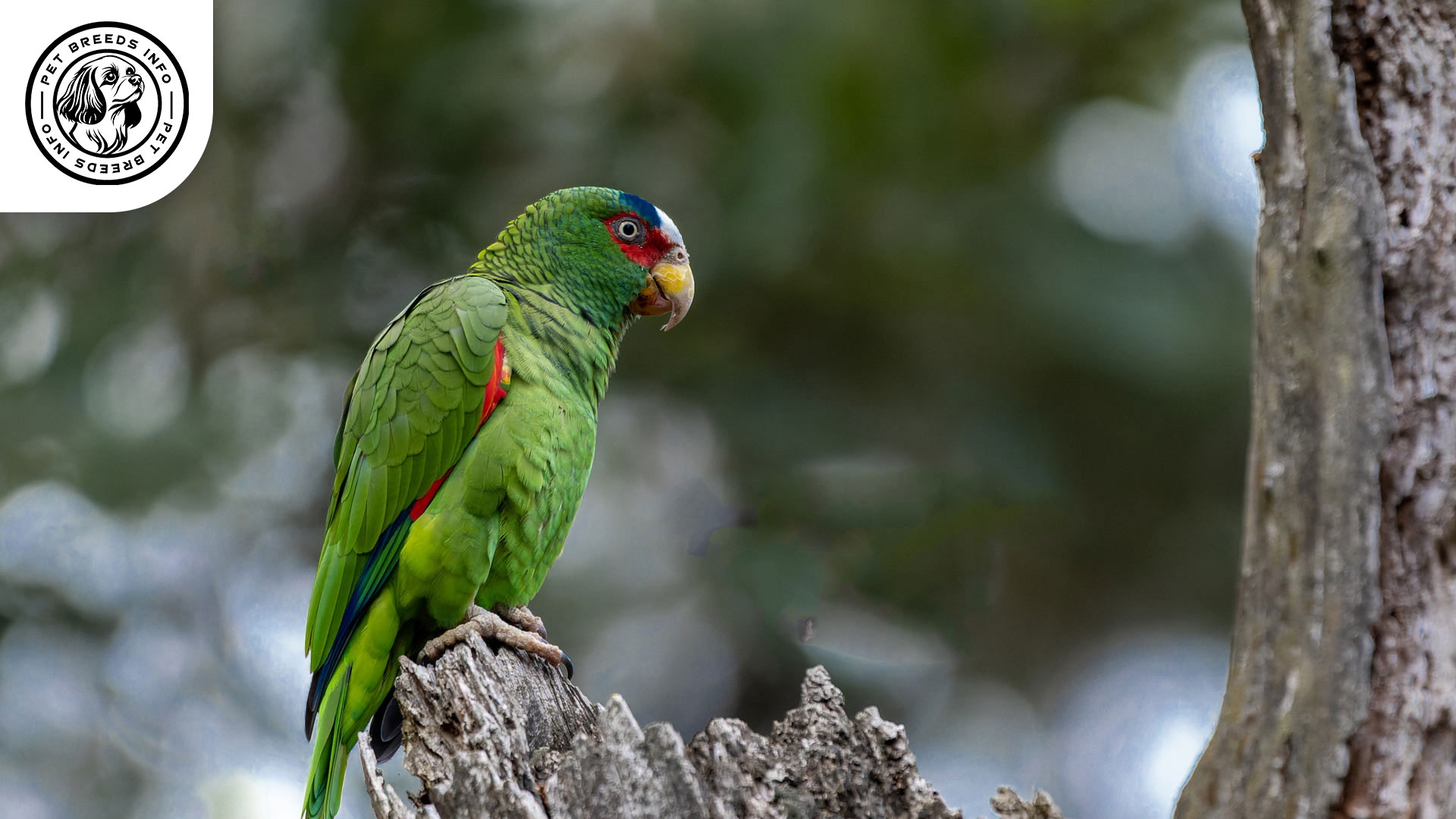
Care and Maintenance Requirements
These parrots require regular mental and physical stimulation. A spacious cage with plenty of toys and perches is recommended.
Daily playtime outside the cage is crucial to prevent boredom and behavioral issues.
White-fronted Amazons adapt well to apartment living as long as their noise level is tolerated.
They are relatively low-maintenance in terms of grooming, needing occasional baths or misting to keep their feathers clean.
Their nails and beak should be monitored for overgrowth, and regular trimming may be necessary.
Diet and Nutrition
A balanced diet consists of high-quality commercial pellets, supplemented with fresh fruits, vegetables, and nuts.
Avoid feeding them chocolate, avocado, caffeine, salt, and sugary foods, as these can be toxic.
They should have fresh water available at all times, and portion sizes should be adjusted to maintain a healthy weight.
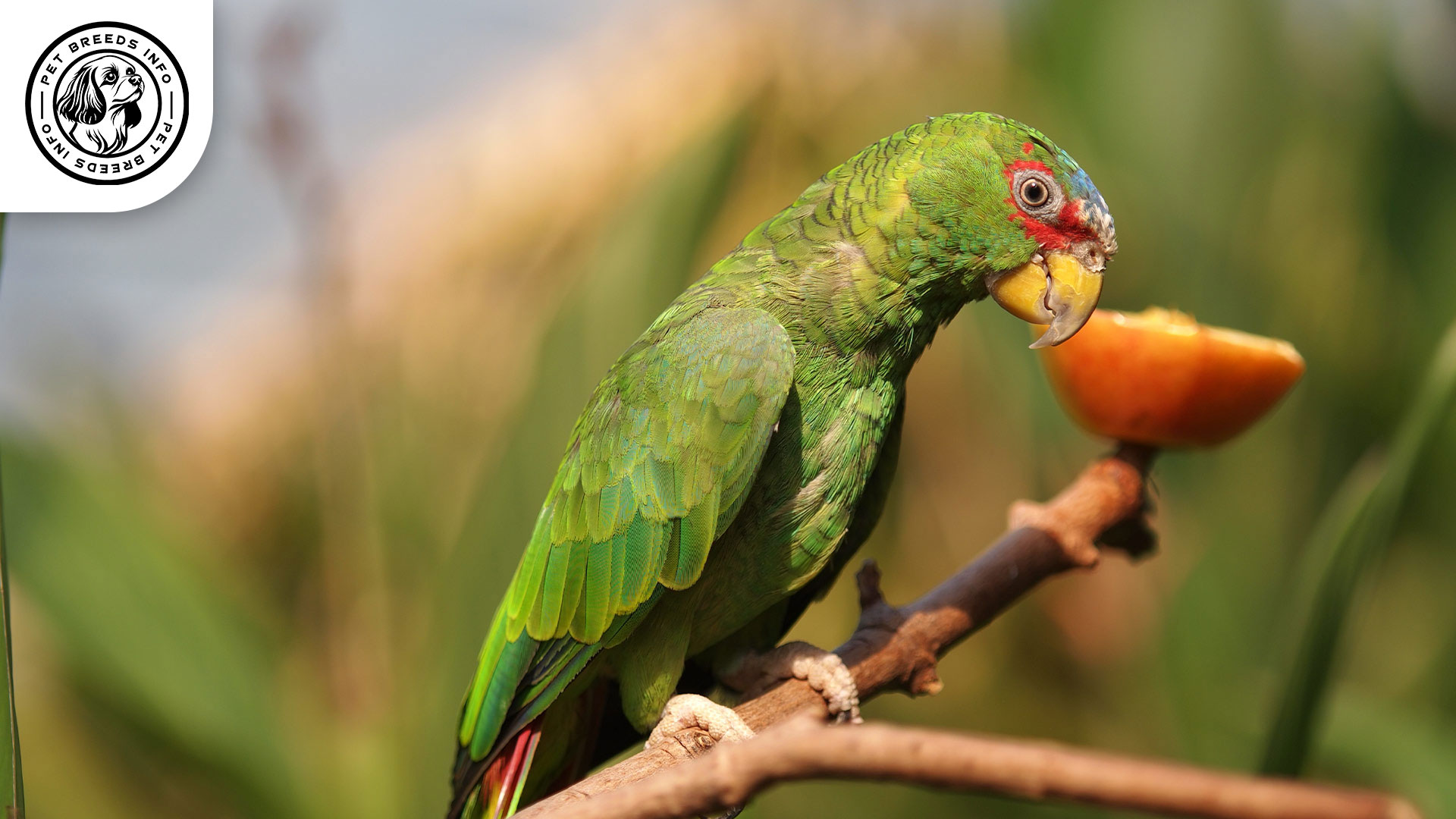
Health and Common Medical Issues
White-fronted Amazons are generally hardy birds, but they are prone to some health issues, including respiratory infections, psittacosis, and beak overgrowth.
They have an average lifespan of 40 to 50 years with proper care.
Regular veterinary check-ups, a hygienic cage, and a well-balanced diet help prevent common illnesses.
Read More: Red-cheeked Cordon-bleu
Training and Behavior Management
These parrots respond well to positive reinforcement training. They can learn commands, simple tricks, and even mimic sounds with patience and consistency.
Early socialization is essential to prevent aggressive or territorial behavior.
Reward-based training methods work best, as harsh discipline can lead to stress and behavioral issues.
Interaction with Other Animals and Humans
White-fronted Amazons are generally good companions for families and individuals alike.
They are social birds that enjoy human interaction and can do well with other parrots if introduced properly.
While they are affectionate, they still require independent time and may not always crave attention.
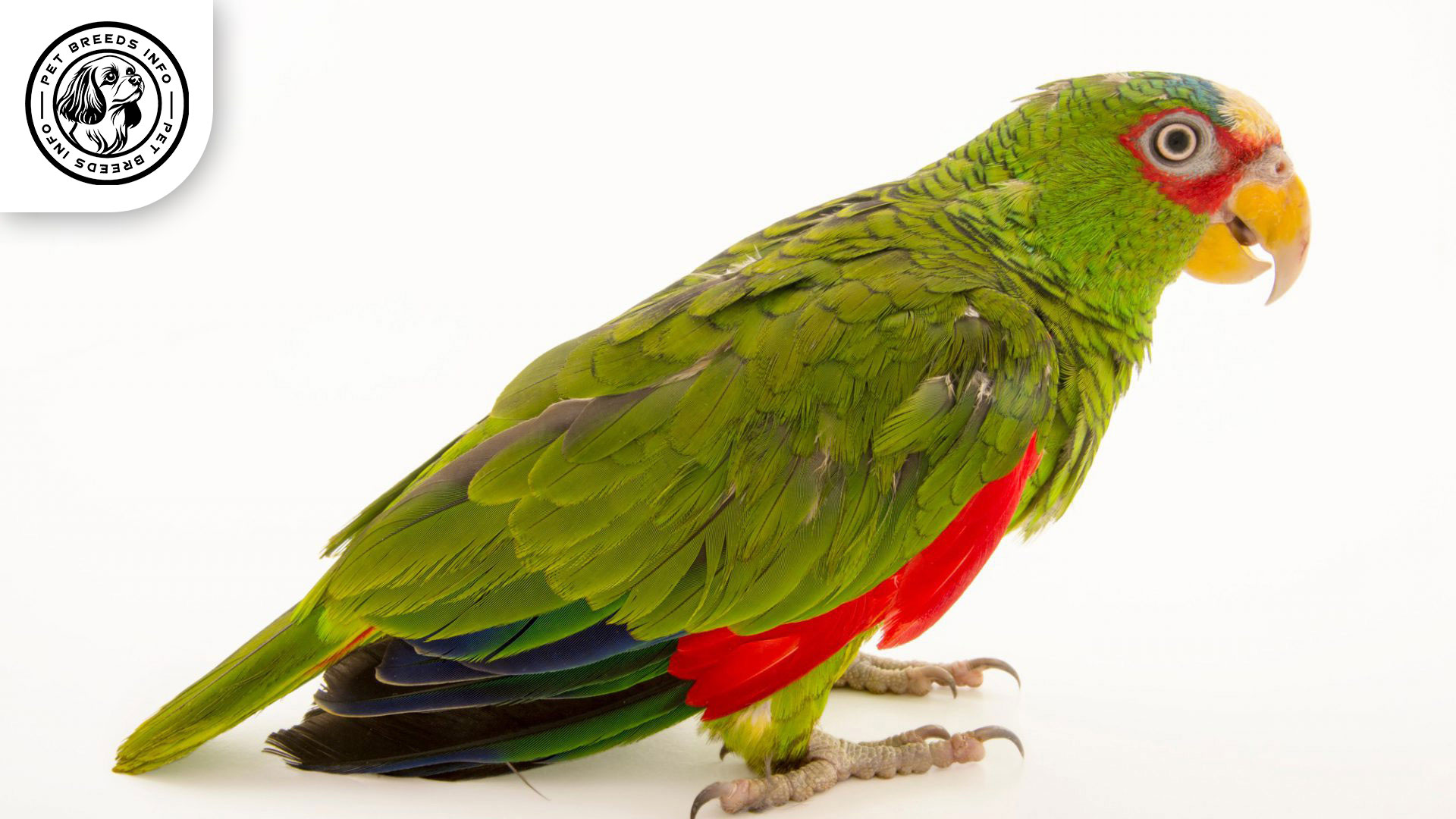
Price and Availability
The price of a White-fronted Amazon varies depending on factors such as age, breeder reputation, and location, typically ranging from $500 to $1,500.
It is recommended to purchase from a trustworthy breeder or adopt from a rescue center to ensure the bird’s health and background history.
Conclusion and Final Thoughts
The White-fronted Amazon is a wonderful choice for bird lovers who are looking for an intelligent, entertaining, and affectionate companion.
They thrive in a home where they receive regular interaction, mental stimulation, and exercise.
Their moderate care requirements and playful personality make them a suitable pet for both experienced and first-time bird owners.
Read More: Lutino Conure Bird
FAQ
What is a White-fronted Amazon known for?
They are known for their friendly nature, moderate size, and ability to learn some words and phrases.
How big do White-fronted Amazons get?
They grow to around 10 inches (25 cm) in length.
What is the typical lifespan of a White-fronted Amazon?
With proper care, they can live for 40 to 50 years.
Do White-fronted Amazons talk well?
They can learn to talk, but they are not considered the best talkers among Amazon parrots.
What kind of environment do White-fronted Amazons need?
They need a spacious cage with toys, daily playtime outside the cage, and regular social interaction.
